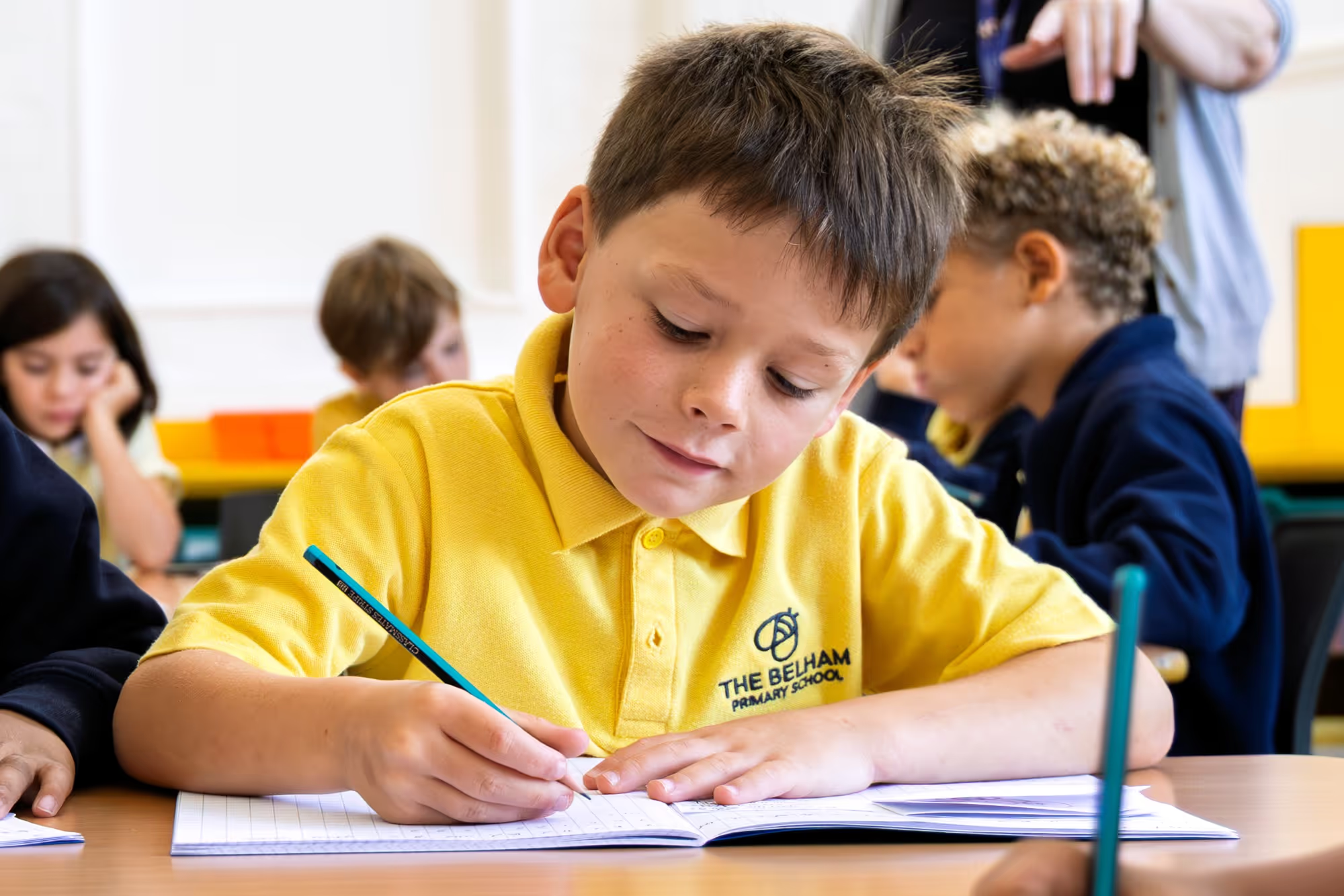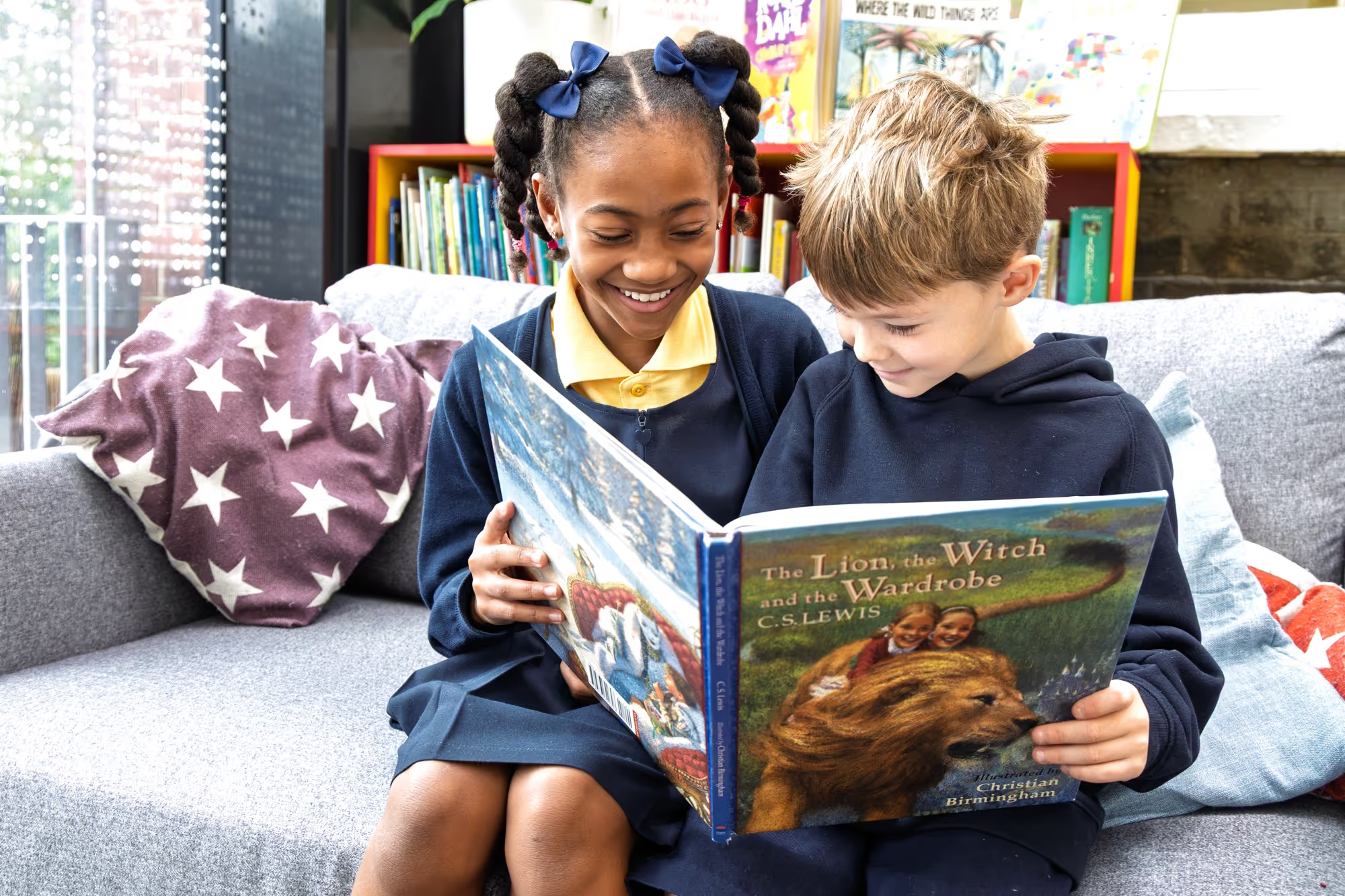Our
English
curriculum
At The Belham, children develop a passion for reading and writing through a rich, diverse and engaging curriculum that nurtures creativity and confidence.



Curriculum intent
At The Belham, our aim is for every child to leave primary school able to write clearly, confidently and with purpose. Writing is central to learning because it helps children express ideas, communicate with others and make sense of the world.
All writing is organised around four clear purposes: to entertain, to inform, to persuade and to discuss. These help children understand why they are writing and who they are writing for. As children move through the school, they learn how to plan, improve and refine their writing so that, by the end of Year 6, they can adapt their writing to suit different audiences and situations.
How we teach
At The Belham, we believe that the books children read shape the people they become. That’s why our writing curriculum is built around a purposeful collection of high-quality texts that reflect our diverse community, challenge stereotypes, support emotional literacy and build character.
In the Early Years, children begin by saying sentences aloud and writing sentences dictated from memory. Alongside this, they follow the Little Wandle Letters and Sounds Revised phonics programme, which helps them break words into sounds, spell accurately and apply this knowledge when writing independently.
Writing lessons follow a clear sequence of Explore, Practise and Compose, shaped by current research into how children learn to write, including guidance from the Education Endowment Foundation (EEF). Children first explore a text to understand its language and purpose, then practise key writing skills, before using what they have learned to plan, draft, edit and publish their own writing.
We are also an early adopter of Supported Sentences to help all children succeed. Developed through our work with the Charles Dickens Research School, supported sentences give children clear sentence models that show ambitious vocabulary and structure. Teachers talk through these examples with the class before children adapt them in their own writing, helping everyone write with confidence while gradually becoming more independent.
Impact
Children become articulate, reflective writers who can express ideas clearly and purposefully. They develop independence, creativity and the ability to adapt their writing for different audiences, leaving The Belham with a lifelong love of language and literature.
How you can help at home
- Read every day – whether your child is reading to you or you are reading to them, this daily habit is the single most important way to support their progress.
- Create writing opportunities – diaries, letters, postcards or shopping lists help children see writing as useful and enjoyable.
- Make it special – a favourite pen, notepad or using the computer can motivate reluctant writers.
- Focus feedback – rather than correcting everything, choose one or two things (like spelling or punctuation) to improve gradually.
- Talk it through – discussing ideas aloud before writing helps children organise their thoughts and strengthen sentence structure.
Most importantly, show your child that writing has a real purpose in everyday life and celebrate their efforts as well as their progress.
Right to withdraw from sex education
Parents have the right to request that their child be withdrawn from some or all of the sex education elements of Relationships and Sex Education (RSE).
At The Belham Primary School, sex education is delivered as part of our RSE programme in line with statutory guidance. Parents do not have the right to withdraw their child from Relationships Education or from the statutory science curriculum, including content on puberty and reproduction.
Any request to withdraw a child from sex education should be made in writing to the Headteacher. The school will work in partnership with parents to discuss the request and ensure that pupils continue to receive appropriate, age-appropriate education.



